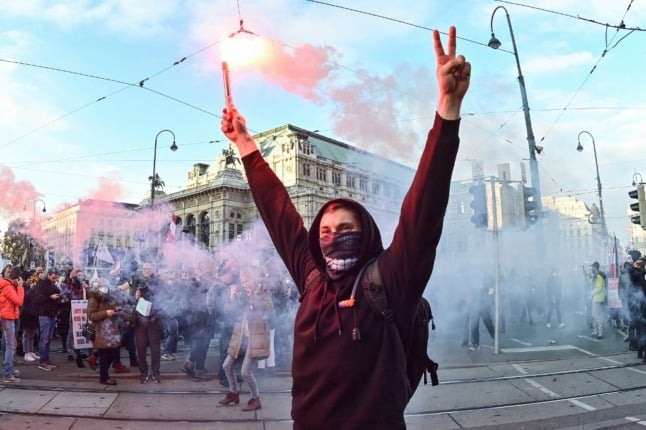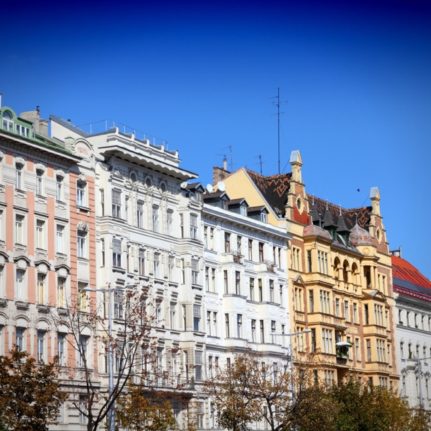Police said an estimated 44,000 people attended the demonstration, the latest in a string of huge weekend protests since Austria last month became the first EU country to say it would make Covid vaccinations mandatory.
A partial confinement since last month ends on Sunday for the vaccinated, but those who have not received the required doses will have to remain at home.
“No to vaccine fascism,” read one protest sign.
“I’m not a neo-Nazi or a hooligan,” said another, “I’m fighting for freedom and against the vaccine.”
Vienna… pic.twitter.com/zooKzUQLgT
— Heidegger (@Kukicat7) December 11, 2021
Vaccination is to be obligatory from February for all residents older than 14, except in the case of a dispensation for health reasons.
Nobody will be vaccinated by force, the government has said, but those who refuse the shot will have to pay a initial fine of 600 euros ($670), which can then increase to 3,600 euros ($4,000) if not settled.
Manuela, 47, said she had travelled in from out of town for the protest.
Vienna 🔥✊ pic.twitter.com/TQb5VDXhWO
— Elisa 🇬🇧🩸 (@JustLaElisa17) December 11, 2021
Why “exclude those who aren’t vaccinated, especially children?” asked the working mother who said she was vaccinated, but did not want to give her surname.
“It’s incredible discrimination not to be able to send a kid to dancing, tennis or swimming lessons.”
Analea, a 44-year-old violin teacher who also refused to give her family name, said this was “not the direction a democracy should be taking”.
“We can have different opinions and values, but still live together freely,” she said.
A flurry of groups called for rallies on Saturday, including the far-right Freedom Party (FPOe), led by leader Herbert Kickl.
READ MORE:



 Please whitelist us to continue reading.
Please whitelist us to continue reading.
Member comments